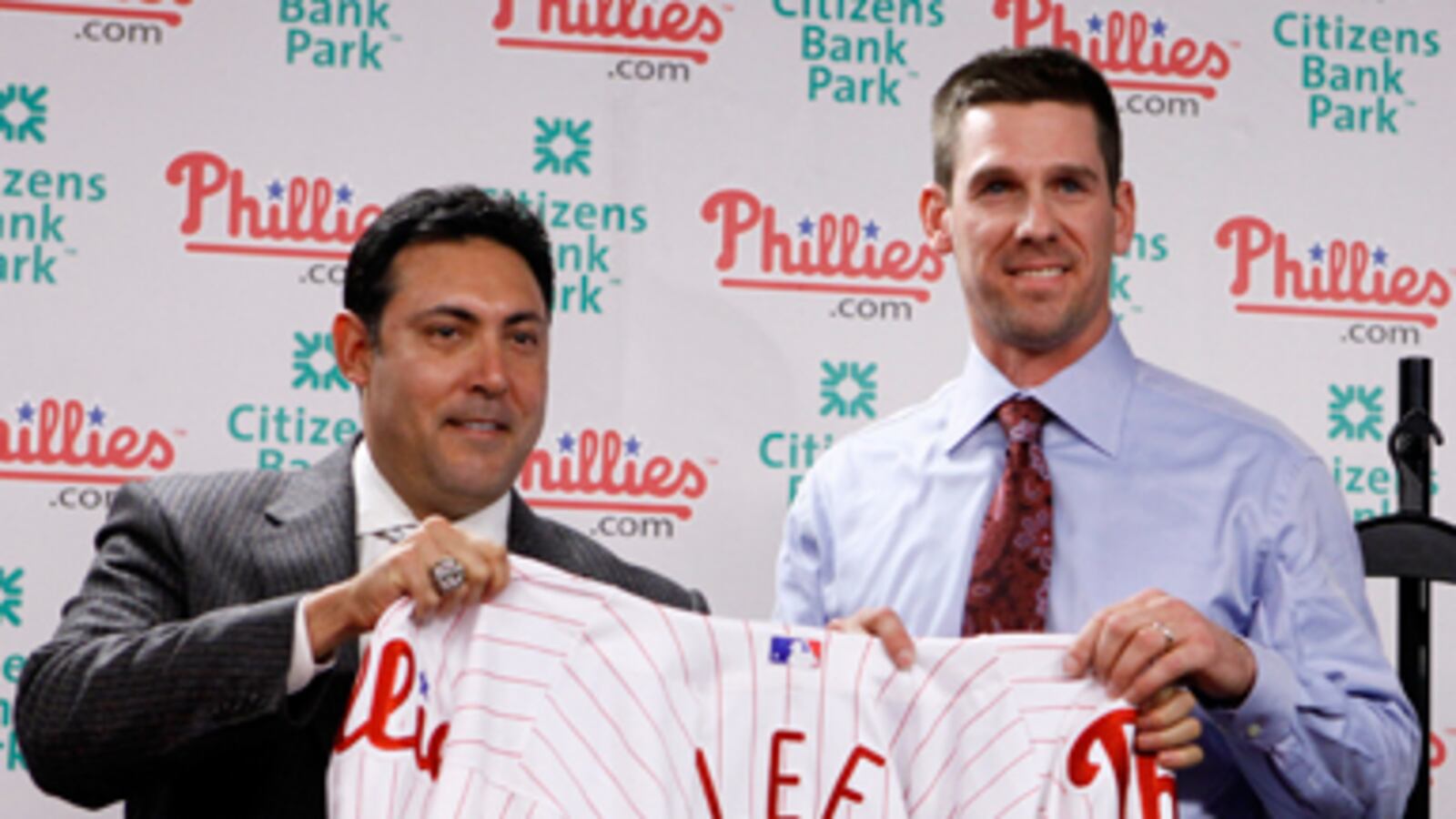New York is many things, most of them sublime as long as your annual income is more than $10 million a year and your children, educated at Dalton or Brearley or even the more déclassé Trinity, go to bed each night thanking God for the invention of the mortgage-backed security.
I sincerely do love the city. I was born there and grew up there in the 1960s and 1970s, when New York still had a middle class; the West Side, where my family lived, was considered a mini-Baghdad, escapable only by the 86th Street crosstown bus; Times Square was filthy, illicit, kinky, erotic, dangerous, whorish, and absolutely magnificent for anybody with the slightest heartbeat of a creative impulse, and the Meatpacking District was dedicated in rightful measure both to meat and very black leather.
I live in Philadelphia now. But I miss the city and will always miss it—nothing will ever beat the strangely attuned smell of garbage and urine in the early-morning heat of the summer of Son of Sam. But the city has also changed.
Say it ain’t so, Joe, but Philadelphia just squashed the Big Apple’s core into mealy applesauce.
The Philadelphia Phillies’ stealth snatching of super free-agent pitcher Cliff Lee from the New York Yankees is a reflection not just of the odd laissez-faire of the Yankees’ front office (General Manager Brian Cashman is truly lucky George Steinbrenner is not alive) but the city itself. What emerged from New Yorkers and local sportswriters was an amalgam of shock, disappointment, and disbelief. Just about all of it was rooted in arrogance—how could anybody turn down New York and the Yanks? What was wrong with Cliff Lee? How could he pick the Lilliputian city whose favorite place of worship is the Rocky statue at the foot of an art museum?
As much as New Yorkers like to think that the city is the universe, the universe has spread. As clever was it was, the famous New Yorker Steinberg cartoon is dead. Distinctive and funky cities actually do exist beyond the George Washington Bridge. Philadelphia, despite the endless amounts of shit it takes not only from New Yorkers but also from its own insecure citizens, is one of them. It is a city where individuality and possibility still count. Even Baltimore, thanks to The Wire and before that Homicide, has become the epicenter of poverty-laced murder and drug-dealing and corrupt unions and school dysfunction. Go farther out to Chicago, and the Magnificent Mile of Michigan Avenue rivals Fifth Avenue.
New York instead is teetering on the precipice of becoming little a place of indulgent gentrification. (Forget Queens and Staten Island. They don’t count and never will.) In Manhattan, every neighborhood that once sang to the creative and sexual soul has been tamped down into generic somnolence. Upper Madison Avenue looks like SoHo, and SoHo looks like the Meatpacking District. The leather bars are largely gone, artist’s lofts have given way to celebrity getaways. Best Buys are procreating like rabbits. Times Square is flatter than most Midwestern malls. All that is really left are apartment buildings and high-end boutique clothing shops that sell nothing but the wearisome attitude of pouty-lipped women hoping to become models or married to the rich and the infamous. You of course can’t smoke in New York anymore, and I’m not even sure you can fuck unless you have a certificate of permissible copulation from the Health Department.
The city’s most distinctive character is Bernie Madoff. In second place is Mike Bloomberg, a brilliant and terrific mayor who also looks like one of the seven dwarves and talks like one with a very stuffed-up nose. The city is living on the vapors of false hubris: We’re great because we’re great.
New York isn’t used to getting totally outmaneuvered. It is embarrassing both for the Yankees and for the city. But that’s what happens when the money-drug sets in.

The handling of the off-season by Brian Cashman really is grounds for firing. An endless amount of time was wasted haggling with future Hall of Fame shortstop Derek Jeter. He should have been paid what he wanted immediately. Yes, he is in the waning years of his career, but Yankee legacy is vital, and Jeter is up there with Joe DiMaggio and Mickey Mantle, maybe even at the top since he plays with a joie de vivre that neither of these taciturn men ever had.
Lee is a fabulous pitcher, still in his prime at 32. He has a career winning percentage of .626. He won the Cy Young award in 2008. His record in the postseason is 7-2. The first flag of trouble came last summer, when Lee elected to go the Texas Rangers instead of New York. The Yankees, so caught up in the Jeter myopia, seemed to consider him a foregone conclusion in which enough money would do the trick. The reported offer was somewhere around $160 million for seven years, but $170 million, $180 million, the Yankees would have gone that high. It has always been funny money to them, in much the same way that hedge-fund traders buy vastly overpriced Impressionist paintings and then hang them on the wall next to the squash courts, most likely upside down, because what the hell difference does it make when it’s a Rothko. Black on black is black.
They saw Lee as a commodity to be auctioned to the highest bidder. Hard-core Yankee fans, not the ones in the Savile Row suits who only attend playoff games and wouldn’t know a bunt from a balk and talk on their cellphones the whole time anyway, didn’t help by being the animals they basically are. Lee’s wife reportedly got spat on during the playoffs last year, when the Rangers beat the Yankees in the American League Championship Series, and for some reason, just didn’t feel comfortable with the reception.
Phillies General Manager Ruben Amaro Jr. correctly calculated that Lee, who had pitched for the Phils in 2009 as they made it to the World Series and loved every minute of it, would want to return. He calculated that Lee would rather be in a city where an artist can find an affordable loft and young couples can find starter homes without the help of mommy and daddy. He loved the Phillies’ sold-out crowds. He loved the atmosphere of Citizens Bank Park, intimate and cozy, unlike the new Yankee Stadium, cold and glacial and as bad as the old Yankee Stadium but without the great ghosts walking through the concourse. Still, Lee did not come cheap: He signed a five-year deal for $120 million with an option for a sixth.
New York isn’t used to getting totally outmaneuvered. It is embarrassing both for the Yankees and for the city. But that’s what happens when the money-drug sets in. Not everything can be bought. You destroy the character of every neighborhood, you destroy the character of the people. New York is not there yet. It is still the mecca for young people, still the world’s most vibrant cultural center, the best and brightest still flock. But something has been lost. What’s so uncharacteristic is the whininess and sense of victimization.
This is what’s become of the Yankees and the city of New York: Bloated, way too dull for what should still be the greatest city on earth, and now embarrassingly snookered.
Buzz Bissinger, a sports columnist for The Daily Beast, is a Pulitzer Prize-winning journalist and the author of Friday Night Lights and Three Nights in August. He is a contributing editor at Vanity Fair.






